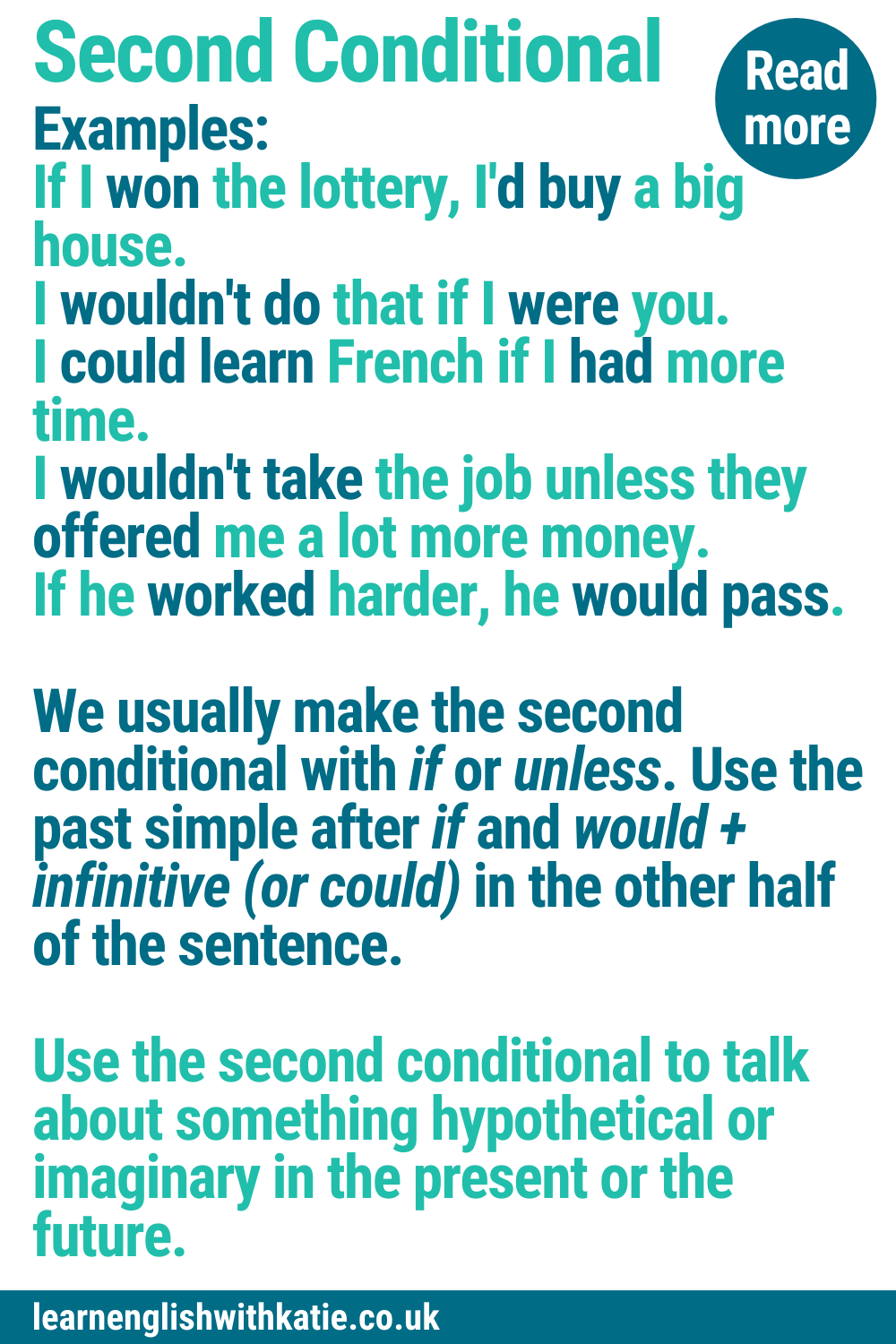|
Today I'm going to tell you about the second conditional. We use this to talk about something unreal, imaginary or hypothetical. It could be something that is unlikely to happen in the future or something that is not true or impossible in the present. We usually make the second conditional with the past simple after if and would/wouldn't + infinitive in the other half of the sentence. Examples: No coffee for me, thanks. If I drank coffee, I wouldn't sleep tonight. (future) If I won the lottery, I would buy a bigger house. (future) I'd go for a walk if it wasn't raining right now. (present) If I had time, I would help you. (present) Something strange can happen to the verb to be after I, he, she or it (in the first and third person singular). We sometimes use were instead of was. For example: If he were rich, I would marry him! (Or: If he was rich...) If I were taller, I would join the basketball team. (Or: If I was taller...) (If you want to know why, it's because it's the subjunctive but you don't really need to know the technical reason.) Both was and were are correct and it's just a matter of personal preference. Age might be a factor too. Older people are perhaps more likely to use were while younger people often use was. There is one situation though where almost everyone uses were and that's in the phrase If I were you. If I was you sounds strange. I wouldn't worry about it if I were you. Remember, when the linking word is at the beginning, you need a comma in the middle. You can also occasionally use unless instead of if. He wouldn't be late for work unless there was something wrong. Might is possible instead of would: If I spoke better French, I might apply for that job in Paris. Sometimes we use could, which means would be able to: If I had more money, I could buy a better car. In all the sentences above, we are talking about something which is impossible or unlikely. We are talking about the present or the future but we use the past tense, which is rather confusing! Compare the first and second conditional: First: If I have time this evening, I'll help you. It's possible I will have time and then I will help you. Second: If I had time this evening, I would help you. I can't help you because I won't have time. Both sentences are talking about the future but the first situation is likely and the second is not. The most common mistake that learners make is to think that the second conditional is talking about the past because of the past tense but it's important to know that it is about the present or future. The main points to remember about the second conditional are: 1. It describes something that is unlikely in the future or impossible now. 2. It's not real. It's imaginary or hypothetical. 3. We usually use the past simple after if and would/wouldn't + infinitive in the other half of the sentence. You can learn about the first conditional here and the zero conditional here. If you understand all of these, then you are are ready for the third conditional! Click here. If you would like more grammar lessons and tips for learning English in your email inbox, click the button and sign up:
0 Comments
Your comment will be posted after it is approved.
Leave a Reply. |
About the blogFollow the blog for mini lessons and tips on how to improve your English. Categories
All
Archives
July 2024
|

 RSS Feed
RSS Feed
